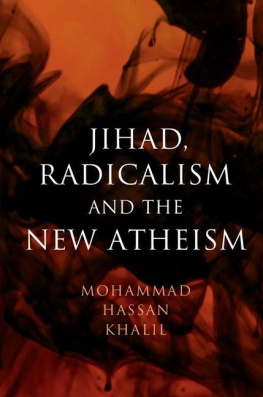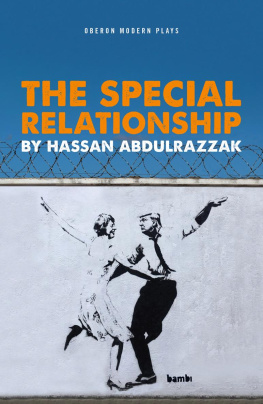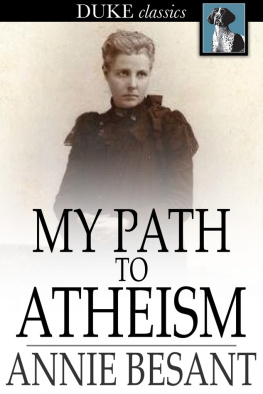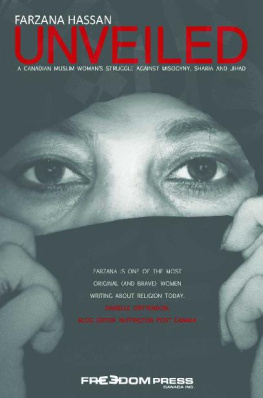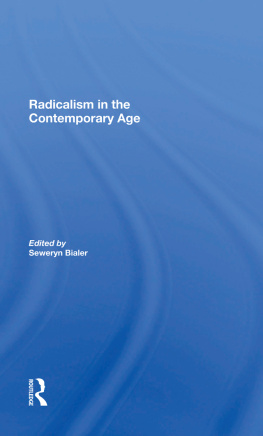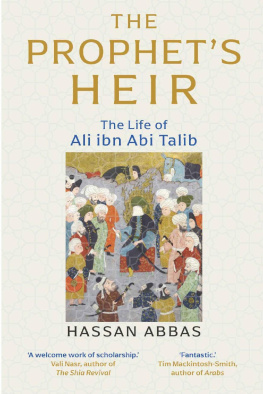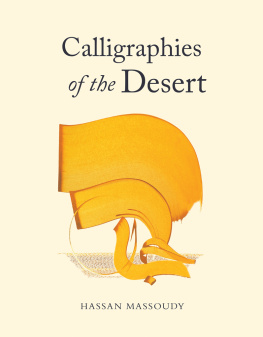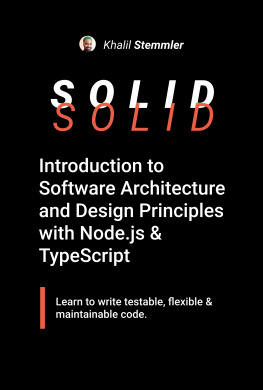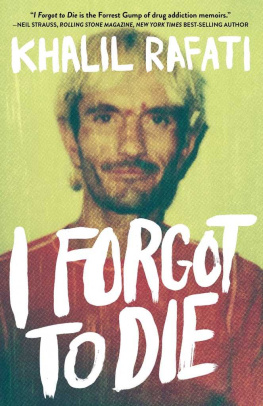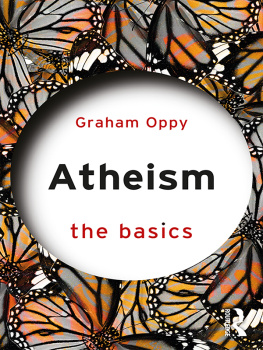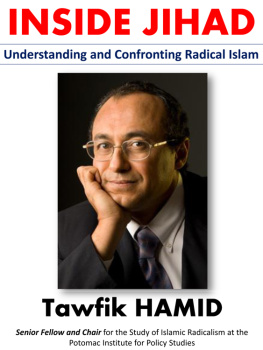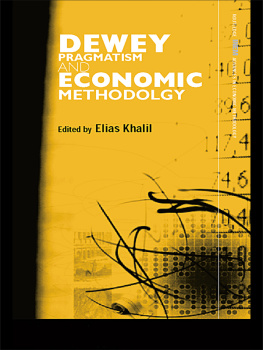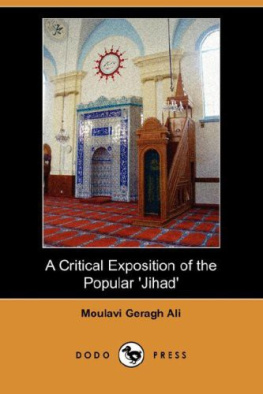Mohammad Hassan Khalil - Jihad, Radicalism, and the New Atheism
Here you can read online Mohammad Hassan Khalil - Jihad, Radicalism, and the New Atheism full text of the book (entire story) in english for free. Download pdf and epub, get meaning, cover and reviews about this ebook. year: 2017, publisher: Cambridge University Press, genre: Politics. Description of the work, (preface) as well as reviews are available. Best literature library LitArk.com created for fans of good reading and offers a wide selection of genres:
Romance novel
Science fiction
Adventure
Detective
Science
History
Home and family
Prose
Art
Politics
Computer
Non-fiction
Religion
Business
Children
Humor
Choose a favorite category and find really read worthwhile books. Enjoy immersion in the world of imagination, feel the emotions of the characters or learn something new for yourself, make an fascinating discovery.
- Book:Jihad, Radicalism, and the New Atheism
- Author:
- Publisher:Cambridge University Press
- Genre:
- Year:2017
- Rating:3 / 5
- Favourites:Add to favourites
- Your mark:
- 60
- 1
- 2
- 3
- 4
- 5
Jihad, Radicalism, and the New Atheism: summary, description and annotation
We offer to read an annotation, description, summary or preface (depends on what the author of the book "Jihad, Radicalism, and the New Atheism" wrote himself). If you haven't found the necessary information about the book — write in the comments, we will try to find it.
Jihad, Radicalism, and the New Atheism — read online for free the complete book (whole text) full work
Below is the text of the book, divided by pages. System saving the place of the last page read, allows you to conveniently read the book "Jihad, Radicalism, and the New Atheism" online for free, without having to search again every time where you left off. Put a bookmark, and you can go to the page where you finished reading at any time.
Font size:
Interval:
Bookmark:
Jihad, Radicalism, and the New Atheism
Is Islam fundamentally violent? For influential New Atheists such as Sam Harris, Ayaan Hirsi Ali, and Richard Dawkins, the answer is an emphatic yes, largely because of the Islamic doctrine of jihad. According to this view, when al-Qaeda plotted 9/11 or ISIS planned any one of its recent terrorist attacks, they were acting in accord with Islamic scripture. Jihad, Radicalism, and the New Atheism scrutinizes this claim by comparing the conflicting interpretations of jihad offered by mainstream Muslim scholars, violent Muslim radicals, and New Atheists. Mohammad Hassan Khalil considers contemporary Muslim terrorism to be a grave problem that we must now confront. He shows, however, that the explanations offered for this phenomenon by the New Atheists are highly problematic and that their own interpretations of the role of violence in Islam exceed those of even radicals such as Osama bin Laden. In showing all this, Khalil offers critical insights on a most pressing issue.
Mohammad Hassan Khalil is Associate Professor of Religious Studies, Adjunct Professor of Law, and Director of the Muslim Studies Program at his hometown institution, Michigan State University. He is the author of Islam and the Fate of Others: The Salvation Question (2012) and editor of Between Heaven and Hell: Islam, Salvation, and the Fate of Others (2013). He serves on multiple editorial boards and on the board of directors of the Society for the Study of Muslim Ethics. In 2015, he received the Michigan State University Teacher-Scholar Award.
Jihad, Radicalism, and the New Atheism
Mohammad Hassan Khalil
Michigan State University


University Printing House, Cambridge CB 2 8 BS , United Kingdom
One Liberty Plaza, 20th Floor, New York, NY 10006, USA
477 Williamstown Road, Port Melbourne, VIC 3207, Australia
314321, 3rd Floor, Plot 3, Splendor Forum, Jasola District Centre, New Delhi 110025, India
79 Anson Road, #0604/06, Singapore 079906
Cambridge University Press is part of the University of Cambridge.
It furthers the Universitys mission by disseminating knowledge in the pursuit of education, learning, and research at the highest international levels of excellence.
www.cambridge.org
Information on this title: www.cambridge.org/9781108432757
DOI : 10.1017/9781108377263
Mohammad Hassan Khalil 2018
This publication is in copyright. Subject to statutory exception and to the provisions of relevant collective licensing agreements, no reproduction of any part may take place without the written permission of Cambridge University Press.
First published 2018
Printed in the United States of America by Sheridan Books, Inc.
A catalogue record for this publication is available from the British Library .
ISBN 978-1-108-42154-6 Hardback
ISBN 978-1-108-43275-7 Paperback
Cambridge University Press has no responsibility for the persistence or accuracy of URL s for external or third-party internet websites referred to in this publication and does not guarantee that any content on such websites is, or will remain, accurate or appropriate.
To my teachers
I was fortunate to have studied under two of the authorities I cite in this book, my former doctoral advisor and mentor Sherman A. Jackson and my former masters advisor Michael Bonner. It is with these and other exceptional educators in mind that I have chosen to dedicate this book to my teachers.
All mistakes in this book are my own. That said, I am grateful to Valerie Turner, Mairaj Syed, my father Hassan Khalil, and the anonymous reviewers for their insightful feedback on earlier drafts of this book. For their helpful suggestions and, in many cases, for providing me with useful resources I must thank and recognize the following scholars: Ahmed Al-Dawoody, Asma Afsaruddin, Muhammad Afifi al-Akiti, Mohammed Ayoob, Jonathan A. C. Brown, Amy DeRogatis, Mohammed Fadel, Chris Frilingos, Ramon Harvey, Sohail Hashmi, Jon Hoover, Deborah Margolis, Younus Mirza, Yasir Qadhi, Linda Racioppi, Mohammed Rustom, Omid Safi, Michael Sayegh, Laury Silvers, Jessica Stern, Arthur Versluis, and Corri Zoli. I must also express my heartfelt appreciation for my wonderful colleagues, coworkers, and students in the Michigan State University Department of Religious Studies, Muslim Studies Program, and College of Law. For obvious reasons, I am greatly indebted to Beatrice Rehl of Cambridge University Press and her outstanding staff and production team.
For their indefatigable support, I am especially grateful to my loving family. Here I must single out my awe-inspiring parents Amina and Hassan, my brilliant siblings Omar and Yousuf, and my better half, my wife Suzanne, and our incredible daughters Maryam and Aya. (In response to one of your favorite questions, Aya, I am now done with the book.)
In the midst of a lively televised exchange between journalist Fareed Zakaria and author Sam Harris on the topic of jihad, Zakaria declared, The problem is you and Osama bin Laden agree ... after all, youre saying ... his interpretation of Islam is correct.
Well, Harris responded, his interpretation ... this is the problem. His interpretation of Islam is very straightforward and honest and you really have to split hairs and do some interpretive acrobatics in order to get it ... to look non-canonical.
Muslims generally understand jihad to be a noble struggle or striving for the sake of God. It comprises various actions, from fighting on the battlefield to endeavoring to attain inner peace in the prayer hall. It is, therefore, simplistic to define it as many writers do as holy war. It is also problematic to insist as many apologists do that it has nothing to do with warfare. In fact, in the specific context of Islamic law, jihad typically denotes an armed struggle against outsiders.
The purpose of this book is to offer a succinct, accessible examination of the ways in which bellicose Muslim radicals such as bin Laden and New Atheists such as Harris and Ali have conceptualized the purpose and boundaries of armed jihad. As one might deduce, here I use the term radicals to denote those seeking extreme changes, and my focus is strictly violent radicals, specifically those who sponsor or engage in terrorism in the name of Islam. My intention is not to offer an exhaustive analysis of jihad, violent radicalism, or the New Atheism; rather, I am interested in the intersection of the three. Nor is it my intention to explore (at least not thoroughly) other contentious aspects of Islamic law that often appear in the writings of radicals and New Atheists, including gender norms and punishments for adultery, apostasy, blasphemy, and treason topics nonetheless worthy of scholarly consideration and engagement.
I have chosen to focus on the New Atheists largely because of their unique and ostensibly significant influence on Western and to some And for those working to combat the very real problem of Muslim terrorism, it is critical to scrutinize influential discourses on the root causes of and potential solutions to this problem.
). Readers will notice that I quote extensively from the individuals I examine, be they Muslim radicals or New Atheists. These extensive quotations are not intended to privilege their particular claims but rather to convey each individuals manner of thinking and tone (in some cases, through the filter of translation).
Font size:
Interval:
Bookmark:
Similar books «Jihad, Radicalism, and the New Atheism»
Look at similar books to Jihad, Radicalism, and the New Atheism. We have selected literature similar in name and meaning in the hope of providing readers with more options to find new, interesting, not yet read works.
Discussion, reviews of the book Jihad, Radicalism, and the New Atheism and just readers' own opinions. Leave your comments, write what you think about the work, its meaning or the main characters. Specify what exactly you liked and what you didn't like, and why you think so.

